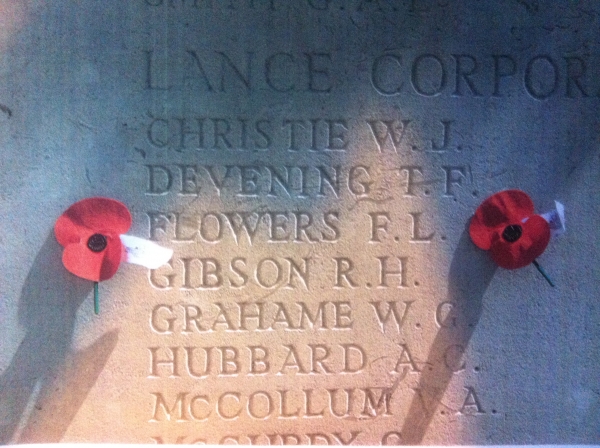Moving on from my own family ancestry back in Japan, I’ve been fortunate enough to be able to gather some information in regards to the soldiers that fought in the New Zealand Division on the Western Front in the First World War.
Thanks to Ms Nesbit, I’ve been able to look into her family ancestry closer and ask her the same questions that I did to my aunty. It was interesting to see both the similarities and differences between the answers so that I can slowly build a bigger picture of the effect that wars have had on different families, from different places and different wars. I'm looking forward to getting all the information and linking them together in the final research project but here's just a bit ti get it started.
Lce. Cpl. Francis Leslie Flowers and Pte. William Flowers were cousins from Golden Bay, a small community where farming and mining was the main trade back them. What I’ve found out from Ms Nesbit is that they most likely decided to become soldiers in WWI from their family roots back in England, but also from the opportunity that they saw in travelling, like many other Kiwi soldiers. It must’ve been very exciting for them to have the chance of visiting the other side of the world from a small rural town in the top of the South Island.
Aside from the Boer War which was the first overseas conflict that New Zealand soldiers were involved in, with there being very few casualties’, the First World War was seen with a more positive outlook and a chance for adventure. And as the conflict never took place in New Zealand, the real horrors of war wouldn’t have been noticed by the populace, back in those days when the internet didn’t exist.
I found this interesting as you begin to question yourself, “Would you join the army, if World War Three started now?” And you realise that you have endless amounts of information regarding the atrocities of war, learning about previous wars at school and having the internet if you wanted to search more up yourself to make an informed decision about it. But back in the day, there was no internet, the only information you ever got about the war was from government propaganda, and you were shamed if you didn’t join the army.
Under these circumstances, I think I’ve learnt that it’s really important to remember each person’s reason for becoming a soldier as this allows the soldiers to remain living in our memories as humans and individuals, instead of just a figure in the statistics of war.
This is because by comparing my own grandfathers reasons for joining the army for Japan and these two cousins reasons for becoming soldiers for New Zealand, you begin to realise how oblivious they were to the actual war and what was really happening. Even if they knew they had a high likelihood of being killed, they would’ve joined anyway from the patriotic propaganda of the government or they would’ve ultimately been forced to join. And at that time, as it was considered the ‘norm’ to fight for your country, no one would’ve known better but to become a soldier.
And through this research so far with more personal knowledge of the soldiers and families involved in the Battle of the Somme, I think it’ll be more challenging for me to keep my emotions in check, but this tour will be so much more worthwhile for it, as I would feel like I have a little bit more connections with the fallen soldiers, rather than just seeing another name engraved on a memorial.
I’m also currently asking the students/staff around my school if they’ve had family members who fought on the Western Front in WWI and WWII. I’m looking forward to bringing a poppy for each of the fallen soldiers and find their names on the various cemeteries that we will visit in France, and place it next to their names on behalf of the families involved so that this tour doesn’t become all about me, but all about us and remembering these soldiers.
Thanks to Ms Nesbit for sharing her family stories with me and Mr Amodeo for giving me a better background knowledge of the Battle of the Somme and the New Zealand involvement in it.


